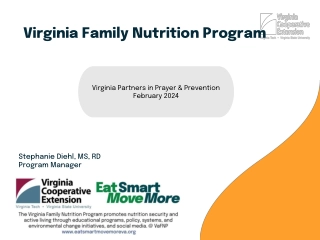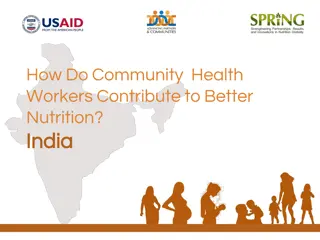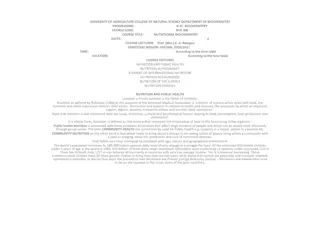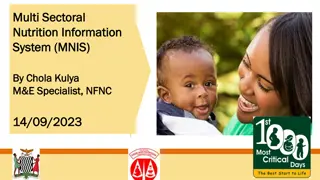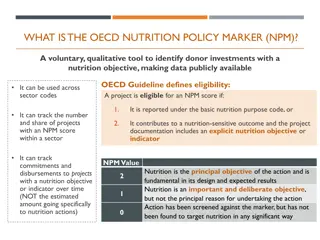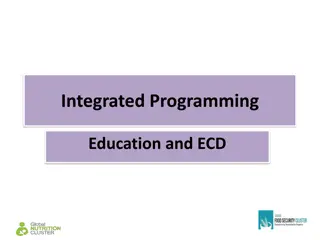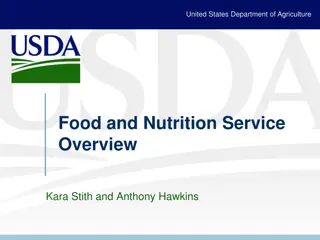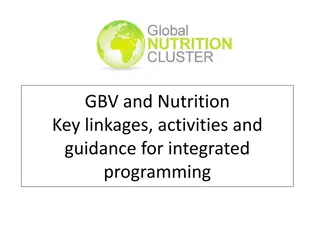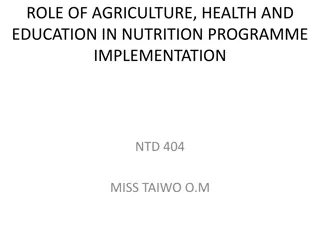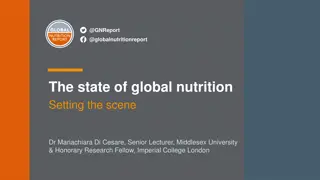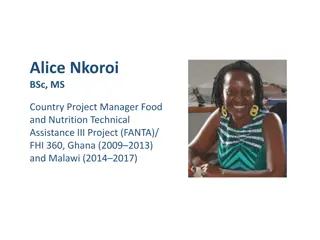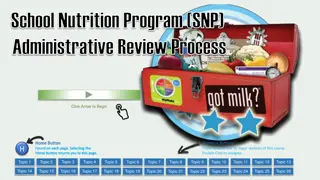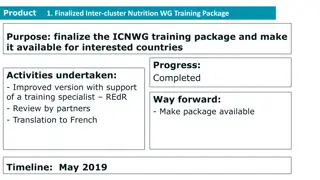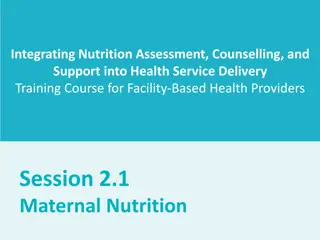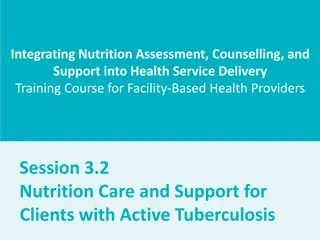Enhancing Accountability and Program Quality in Global Nutrition Initiatives
The project led by HelpAge International, the Global Nutrition Cluster, and UNICEF focuses on enhancing accountability and program quality in global nutrition initiatives. It covers various commitments such as leadership/governance, transparency, feedback and complaints, participation, and more. Consultations with various actors aim to improve accountability practices and program effectiveness in nutrition settings. The synthesis of commitment landscapes aims to create a common framework for diverse cluster partners to better collaborate on program quality and accountability.
Download Presentation

Please find below an Image/Link to download the presentation.
The content on the website is provided AS IS for your information and personal use only. It may not be sold, licensed, or shared on other websites without obtaining consent from the author. Download presentation by click this link. If you encounter any issues during the download, it is possible that the publisher has removed the file from their server.
E N D
Presentation Transcript
Nutrition, AAP and the XCIs A project led by HelpAge International, the Global Nutrition Cluster and UNICEF Barb Wigley
IASC Commitments on AAP The foundation of the framework 1. 2. 3. 4. 5. Leadership/governance Transparency Feedback and complaints Participation Design, monitoring and evaluation
9 CHS Commitments The new player in the field Underpinning NGO partners commitments Communities and people affected by crisis: 1. Receive assistance appropriate and relevant to their needs 2. Have access to the humanitarian assistance they need at the right time 3. Are not negatively affected and are more prepared, resilient and less at-risk as a result of humanitarian action 4. Know their rights and entitlements, have access to information and participate in decisions that affect them 5. Have access to safe and responsive mechanisms to handle complaints 6. Receive coordinated, complementary assistance 7. Can expect delivery of improved assistance as organisations learn from experience and reflection 8. Receive the assistance they require from competent and well-managed staff and volunteers 9. Can expect that the organisations assisting them are managing resources effectively, efficiently and ethically
Consultations Global nutrition actors Cluster partners Q&A actors Chad: cluster, UNICEF, partners, donors, government, programme participants gFSC, WFP and FAO in Rome What people wanted: Guidance on how to put the accountability commitments into practice Practical ideas on AAP would look in a nutrition setting if it were being done well Ideas for indicators so they could measure their effectiveness
If we were told more about the programmes, we would be able to share ideas on how to improve them Young mother, nutrition programme participant, Chad
Synthesizing the commitment landscape The dilemma: How do diverse cluster partners work together better on programme quality and accountability when they report against different sets of commitments Aim: To create a common framework and language for cluster partners that satisfies both sets Proposed solution: The framework throws out the chronological order of the commitments and instead synthesizes the 2 sets of commitments against each other under Commitment Categories that aim to wrangle the complexity: 1. Community Engagement Commitments 2. Organizational Policy and Process Commitments i. Externally focused (quality of the response) ii. Internally focused (quality of organizational functioning)
Category 1: Community Engagement Commitments Practical and predictable strategies and actions ensuring rights, dignity, safety, agency and entitlements are respected All programming should work towards ensuring that women, men, girls and boys affected by crisis, including older people and those with disabilities, have access to: 1. Appropriate, relevant and timely information that is sensitive to stated information needs and preferences across age and gender and diverse groups; 2. Two-way communications channels that welcome and facilitate feedback and complaints and provide redress for complaints; 3. Means to participate in decisions that affect them, including fair and transparent systems of representation
Category 2: Organisational Policy and Processes Commitments Externally focussed on the quality of the response: 2.1 Organisational policy and processes that integrate accountability commitments and ensure the delivery of a quality humanitarian response that: 1. Is appropriate, relevant, effective and timely; 2. Strengthens local capacities and avoids negative effects, and; 3. Is coordinated and complementary
Category 2: Organisational Policy and Processes Commitments Internally focussed on the quality of organisational functioning: 2.2 Organisational policy and processes that ensure the organisations responding: 1. Treat staff fairly and equitably and support them to do their job effectively; 2. Manage and use resources responsibly for their intended purpose, and; 3. Continuously learn and improve
Example nutrition specific contributions to the framework Creative use of unavoidable waiting times Whenever possible, nutrition actors use the gathering of people receiving services and any unavoidable waiting times effectively to respect people s time and maximise opportunities for feedback, monitoring, information exchange and sensitization activities. Use of the time of volunteers for this may help offset lack of time on the part of nutrition staff. Consider the impact on people of attending programmes Nutrition actors consider the impact on the people they seek to assist of attending programmes, including financial and time consumed, ensuring respect is maintained for the daily activities people must undertake and the potential cost to them of attendance. One of the most common examples of this is the distance people are required to travel to attend programmes, and whether this involves additional cost to them, poses any protection risks (especially for women), the added time that travel will mean they are away from their family and daily responsibilities, what options they may have for childcare during time away, the weight of distributed items they may be required to carry, etc. Debate and dialogue keeps nutrition interventions current Nutrition actors debate and discuss recent trends and learning together to ensure their approaches remain up to date and dynamic Nutrition actors including the cluster balance nutrition science with a human rights approach Nutrition actors develop the skills to balance the science of nutrition with a human rights, accountability and community engagement frame of reference
Tools to go with the framework Guidance for cluster coordinators on activities they could undertake in their role in mainstreaming AAP Compendium of AAP indicators An adapted version of the gFSC Checklist to mainstream people centric issues in the humanitarian programme cycle : Guidance for Mainstreaming AAP and People-Related Cross Cutting Issues in the Humanitarian Programme Cycle through the Cluster System


